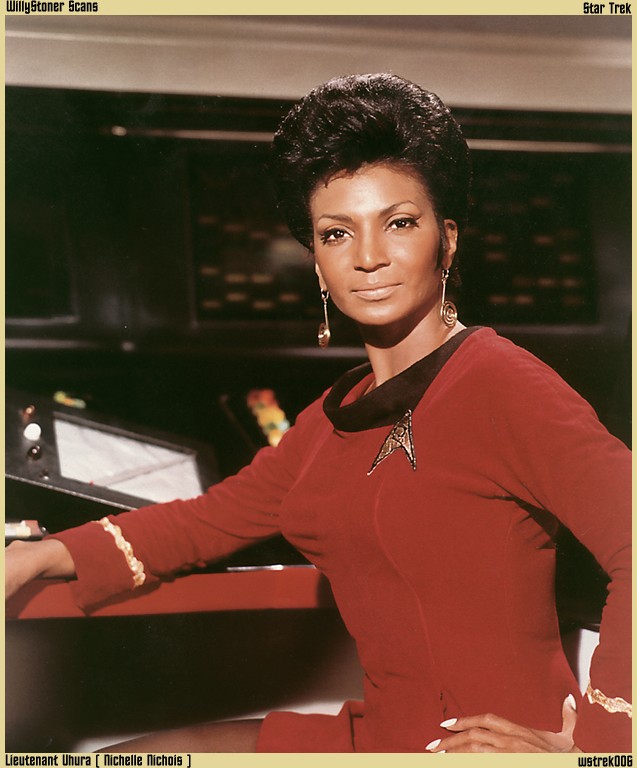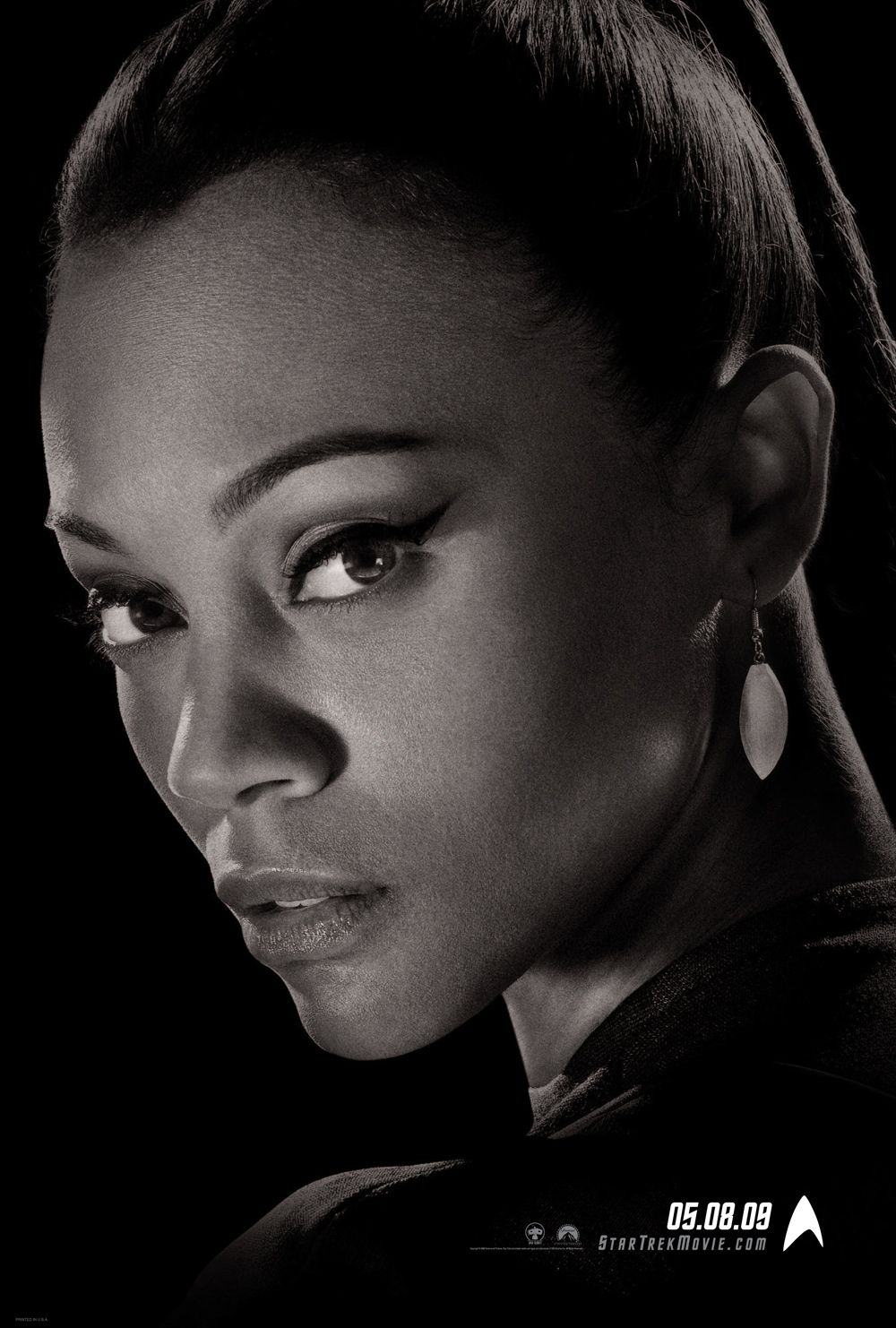Since its conception, Star Trek has been a source of revolution. It has been said that it predicted the future, but really, Star Trek created it. Flip phones have their roots in the original series communicators. Although the iPad has built their image as the first tablet, tablets were first conceived for the set of the Enterprise. But Star Trek’s influence extends far beyond the technology it has inspired (and will continue to). The most famous, most controversial, and most important part of the Enterprise’s impact on the modern world has been its belief and promotion of human rights. Star Trek, and its creator Gene Roddenberry, have long stood for the rights of underprivileged groups: women, people of color, and trans and gay people. A defining part of the show was its outright belief that all people are created equal, and the history of their effort to embody this is so impressive it’s almost unbelievable. However, I assure you it’s all true.

The Space Shuttle Enterprise rolls out of the Palmdale manufacturing facilities with Star Trek television cast and crew members. From left to right, the following are pictured: DeForest Kelley, who portrayed Dr. "Bones" McCoy on the series; George Takei (Mr. Sulu); James Doohan (Chief Engineer Montgomery "Scotty" Scott); Nichelle Nichols (Lt. Uhura); Leonard Nimoy (Mr. Spock); series creator Gene Roddenberry; NASA Deputy Administrator George Low; and, Walter Koenig (Ensign Pavel Chekov). Wikimedia Commons: NASA
****************************************************************************
The year was 1967. Star Trek actress Nichelle Nichols had blocked out this Sunday on her calendar months ago. The candles were lit, the tables were set. The National Association for the Advancement of Colored people was hosting a fundraiser at UCLA. Nichelle was a celebrity guest seated up on a dais, laughing the night away. The night was to be a big influence on her career, although she didn’t know it yet.
As the opening ceremony was held, and welcoming lines read, an organizer approached her, saying that her biggest best fan was here to meet her. Smiling and turning around, expecting to see a young Trekkie approaching her, she sees Dr. Martin Luther King, Jr. She pauses for a second and decides that her fan will have to wait, because here’s one of the most influential men of her generation. Dr. King walks up, smiles a big ol’ smile, and excitedly says “I’m the fan! I am your best fan, I am your biggest fan!” Nichelle pauses, at a loss for words. Her eyes are wide and her jaw is dropped. This is rare for her, a loud friendly woman. She couldn’t say anything, like her jaw was held together by melted taffy.
This was during the Civil Rights movement. There were marchers, and regular violent hate crimes, there was a movement going on across the nation fighting for equality. There were people gathering together to fight for what they believed in, fighting for what was right. Yet Martin Luther King still felt the need to come talk to her, a TV actress.
Nichelle still had yet to respond, so Dr. King continued. “It’s so important the way you have created this role. The way you represent women on television. Your character is such an inspiration to me, showing a future that I can strive for.” She smiled wider and wider. She hoped he would never stop talking. He was interested in her program. She was shaking with nervousness as she shook his hand, excited beyond belief. “Thank you so much, Dr. King. Thank you so much, I really am going to miss my co-stars.”
When she said that, his face changed. A frown took over his face, and with furrowed brows he asked what she was talking about. Nichelle had just handed in her resignation papers to Gene Roddenberry, the producer. She had been offered a show on Broadway. It was good press and paid more. She was one of the only members of the Star Trek crew who didn’t have a contract, she was paid weekly. She had hypothesized it was because they wanted to be able to fire her at any time if the audience didn’t like a black woman shown as third in command of the flagship of the Federation. She was also the only member who didn’t have her fan mail sent directly to her. The Broadway show might be better for her.
“What are you talking about? You’re leaving the show?!” Nichelle made to explain, but before she even got a word out, he started talking again.
“STOP! You cannot! You simply cannot leave this show! Do you not understand what you are doing? You are the first non-stereotypical role in television! Of intelligence, and of a woman, and on top a woman of color?! You are playing a role that is not about your color! This role could be played by anyone. This is not a black role. This is not a female role. A blue eyed blond or a pointed-ear green person could take this role! Nichelle, for the first time, not only our little children and people can look on television and see themselves, but people who don’t look like us, people from all over the world, for the first time on television can see us as we should be! As intelligent, brilliant, people! People in roles other than slick tap dancers and maids. For the first time we have a woman, a WOMAN, who represents us and not in a menial job. And you prove it, Gene proves and establishes a precedent that validates what we are marching for, because three hundred years from today there we are, and there you are, in all our glory and all your glory. You cannot leave!”
The speech changed her mind. She turned down the show on broadway and went back to Star Trek. She talked to Gene Roddenberry the following day. She told him what Dr. King had said, and that she wanted to stay on the show. When she finished her story she looked at him, this big man, sitting behind his big desk, and he was crying. He said, “Thank God someone understands what I’m trying to achieve.” Reaching into his desk, he pulled out her letter of resignation and returned it to her. It had already been torn up into little shreds.
****************************************************************************
Lying on the carpeted floor after school, elbows on the floor propping her chin up, Whoopi Goldberg watched TV. It was the first episode of a new show, Star Trek. But a few minutes in she noticed something. Bolting into a sitting position, she grinned from ear to ear. “Everybody!” She was yelling through the house for anybody. “There’s a black lady on TV and she ain’t no maid!” Genuine excitement coursed through her. She began watching Star Trek religiously, and looked up to Nichelle as her childhood hero.
As an adult, Whoopi Goldgerg always remembered that moment. When Star Trek came back with a new series, she knew she had to be a part of it.
When the first season ended, a perfect opportunity to introduce a new character came along. Whoopi called her agent, who called Gene Roddenberry, begging for a part, any part. At first Gene resisted, saying that there was no part big enough for someone of her fame. “I don’t care,” she said “make me the bartender for all I care.” And they did. Gene wrote a role specifically for her, a wise bartender named Guinan.
She became the second generation of powerful women on the show. The Next Generation had Beverley Crusher, the chief medical officer, Tasha Yarr, the head of security, etc. The show was full of strong women, and strong people of color. Guinan was intelligent, insightful, and had influence over the running of the ship.
*******************************************************************************
JJ Abrams, the director of the new Star Trek reboot, went on the Daily Show to talk about his twist on the franchise. Sitting across the table from Jon Stewart, the director revealed something that surprised fans.

Comparative sexualization of Uhura in the Star Trek series. Flickr Creative Commons: Lexinatrix

Comparative sexualization of Uhura in the new Star Trek series. Photo flickr creative commons: SteveGarfield
Abrams leaned back into his chair as if reluctant to admit it. “I never liked Star Trek when I was a kid. Growing up, I couldn’t get into it.” He raises his hands and shrugs apologetically at the camera. “My friends loved it, and I would try. I would watch episodes and it was just too philosophical for me. So for this, the goal was to make a movie for moviegoers, not just for Star Trek fans.”
As Star Trek fans across the country gasped in horror, Jon Stewart gave Abrams a calculating look, glanced at his coffee, snorted, and stood up for the franchise. “The interesting thing for me is that I stopped listening when you said you didn’t like Star Trek.” Stewart looks at the camera and cocks his head. “But I think I know what happened because your mouth kept moving after that, so I’m assuming you apologized.” Laughter fills the room. Abrams laughs along a little.
“Well - I couldn’t get it. So we tried to make it work for the people like me and the people like you.” Another shrug.
Jon leans across the table towards Abram. “You know what the difference is? Back then there was a very overt effort to put in that kind of philosophy and those sort of ideas because we’re processing the difficulties of our world.” He pauses to let Abrams speak, to no response. “At the time you would watch it and on the surface it was goofy but then it would turn around and be like ‘racism is wrong!’ But then Kirk would make love to a green woman and you’d be like: we should all just live together in peace.” Another pause. “Well that’s all the time we have for tonight! JJ Abrams everybody!”
Abrams’ issue with Star Trek - its inherent philosophy - is what made the original show important. The mission of Star Trek is what separates it from other Sci Fi. The new franchise has none of that. Several changes to the original story have taken the message out of context, and sometimes removed the message entirely. The enemy in the movie, Khan, was famously, and controversially, played by a man of color. Khan’s character is a futuristic genetic experiment. In an attempt to create a superior species, the best DNA from all over the planet was rolled up to create him. In the original series, his color was widely resented, because people believed that the best DNA would be create a white person. Gene Roddenberry didn’t just make a casting choice, he made a statement. In the new reboot, Khan is white. Although perhaps unintentional, Star Trek: Into Darkness has turned that message on its head.
The same way Abrams whitewashed a major character, the women in the movie have been blatantly reduced to their romantic and sexual story lines. Now in this modern era, where race and gender discrimination should be less of a problem, Star Trek should be standing for its values, not bashing apart what it once stood for.
Anne Driscoll is a member of the Youth Travel Blogging Mentorship Program
Since its conception, Star Trek has been a source of revolution. It has been said that it predicted the future, but really Star Trek created it
Posted by:
Anne Driscoll
